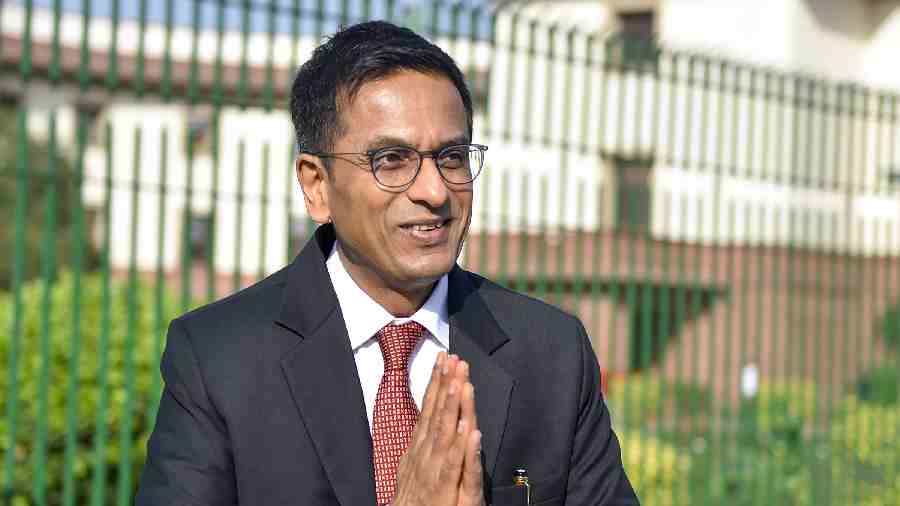The Supreme Court on Friday issued notices to the Centre and attorney-general R. Venkataramani for their views on two petitions seeking recognition of marriage within the LGBTQ community as a fundamental right.
The Special Marriages Act, 1954, does not recognise LGBTQ marriages. A bench of Chief Justice of India D.Y. Chandrachud and Justice Hima Kohli sought the response on petitions filed by two gay couples seeking the relief.
While one petition was filed by Parth Phiroze Mehrotra and Uday Raj, the other was filed by Hyderabad-based Supriryo Chakraborty and Abhay Dang. According to the petition filed by Mehrotra and Raj, the fundamental right to marry a person of one’s choice has been recognised by the apex court in a number of earlier judgments, yet they are unable to get formally married in view of the legal hassles.
The petitioners referred to the Special Marriage Act, 1954, which says a marriage can be solemnised provided “the male has completed the age of twenty-one years and the female the age of eighteen years”. “The use, in Section 4(c), of the words ‘male’ and ‘female’, as well as the use of gendered language such as the terms ‘husband/wife’ and ‘bride/ bridegroom’ in other sections of the Act, limit the access to marriage to a couple comprising one ‘male’ and one ‘female’. Such limiting of access, is violative of the fundamental rights of LGBTQ+ individuals and is unconstitutional,” the petitioners said.
According to the petition, Mehrotra and Anand “are presently raising two children (through surrogacy) together, but unfortunately the fact that they cannot legally solemnise their marriage has resulted in a situation where both petitioners cannot have a legal relationship of parent and child with both their children”. “Today, both children have the legal relationship of a child and parent only with Petitioner No. 2 (Anand). As such, in the eyes of the law, Petitioner No. I (Mehrotra) has no legally recognised relationship with his children, a circumstance which causes not only immense anguish, but also significant practical problems,” the petition said.
“This situation is particularly paradoxical given the fact that the Petitioner No. I is the primary caregiver for both the children. If the petitioners, as a same-sex couple, enjoyed access to the civil institution of marriage, they would not face untold practical difficulties, both vis-a-vis each other and their children. The denial of the fundamental right of marriage to persons like the petitioners is a complete violation of constitutional law,” they added.











